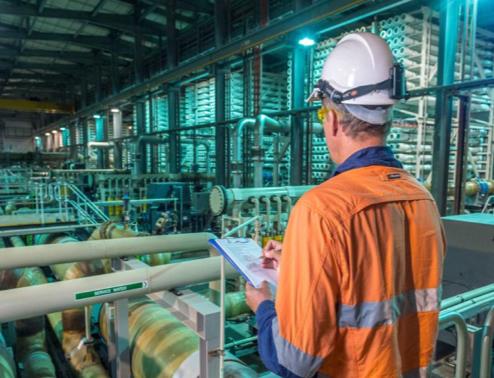
Menu
Water management is a critical aspect of oil and gas production, impacting both operational efficiency and environmental sustainability. This course delves into the principles, technologies, and best practices involved in the treatment, handling, and disposal of water in oil and gas operations. From sourcing and recycling to regulatory compliance and emerging trends, participants will gain comprehensive knowledge to optimize water management strategies in the industry.
- Understand the importance of water management in oil and gas production
- Identify different sources of water and assess their suitability for various operations
- Implement effective water treatment and recycling strategies to optimize resource utilization
- Ensure compliance with regulatory requirements and environmental standards
- Evaluate emerging technologies and trends to enhance water management practices in the industry
Module 1: Introduction to Water Management in Oil and Gas Production
- Overview of water usage in upstream oil and gas operations
- Importance of effective water management
- Regulatory framework and environmental considerations
Module 2: Water Sourcing and Acquisition
- Different sources of water for oil and gas operations
- Methods of water acquisition: surface water, groundwater, produced water
- Assessing water quality and suitability for various processes
Module 3: Produced Water Handling and Treatment
- Understanding produced water composition
- Treatment technologies: separation, filtration, chemical treatment
- Recycling and reuse strategies to minimize freshwater consumption
Module 4: Injection Water Management
- Role of injection water in enhanced oil recovery (EOR)
- Water injection system design and operation
- Monitoring and controlling injection water quality
Module 5: Flowback and Produced Water Management
- Handling flowback water during well completion
- Treatment and disposal options for produced water
- Mitigating risks of water contamination and spills
Module 6: Environmental Compliance and Sustainability
- Regulatory requirements for water management in oil and gas production
- Implementing best practices for sustainable water usage
- Case studies highlighting successful environmental stewardship initiatives
Module 7: Emerging Technologies and Trends
- Innovations in water treatment and recycling
- Advancements in remote monitoring and control systems
- Future outlook:
- Expert-led lectures and interactive discussions
- Real-world case studies and examples from industry
- Access to course materials and resources online
- Opportunities for networking and collaboration with peers
- Practical exercises and hands-on learning experiences
- Professionals working in oil and gas exploration, production, and operations
- Environmental engineers and consultants involved in water management projects
- Regulatory personnel responsible for overseeing water-related compliance in the industry
Enroll Now
Don’t miss this opportunity to enhance your expertise in water management for oil and gas production. Enroll now to gain valuable insights, network with industry peers, and advance your career in the energy sector. Visit our course registration page or contact our course coordinator at [email protected]

Frequently Asked Questions (FAQ)
The oil and gas industry faces various challenges in water management, including sourcing sufficient quantities of water for operations, treating produced water to meet regulatory standards, minimizing freshwater consumption, and managing flowback water and other wastewater streams responsibly.
Effective water management is crucial for minimizing the environmental footprint of oil and gas production. By recycling and reusing water, reducing freshwater consumption, and implementing proper treatment and disposal techniques, companies can mitigate the risks of water contamination, protect ecosystems, and ensure compliance with environmental regulations.
What are some key regulatory considerations related to water management in the oil and gas industry?
Regulatory requirements for water management vary by region but often include permits for water usage, discharge limits for pollutants, and guidelines for recycling and disposal. It’s essential for oil and gas companies to stay informed about relevant regulations and ensure compliance to avoid penalties and maintain public trust.
Emerging technologies such as advanced water treatment systems, real-time monitoring and control tools, and digitalization platforms offer opportunities to enhance water management efficiency and effectiveness. These technologies can enable companies to optimize water usage, reduce operational costs, and minimize environmental impacts.
Many oil and gas companies have implemented innovative water management initiatives to address environmental concerns and improve operational performance. Examples include the use of produced water for hydraulic fracturing, the development of closed-loop systems for water recycling, and the adoption of sustainable practices such as reforestation and habitat restoration in watersheds affected by industry activities.
Get In Touch!
Contact us for a quote or in case of any urgent queries please send us an email on: [email protected]
we will get back to you right away!